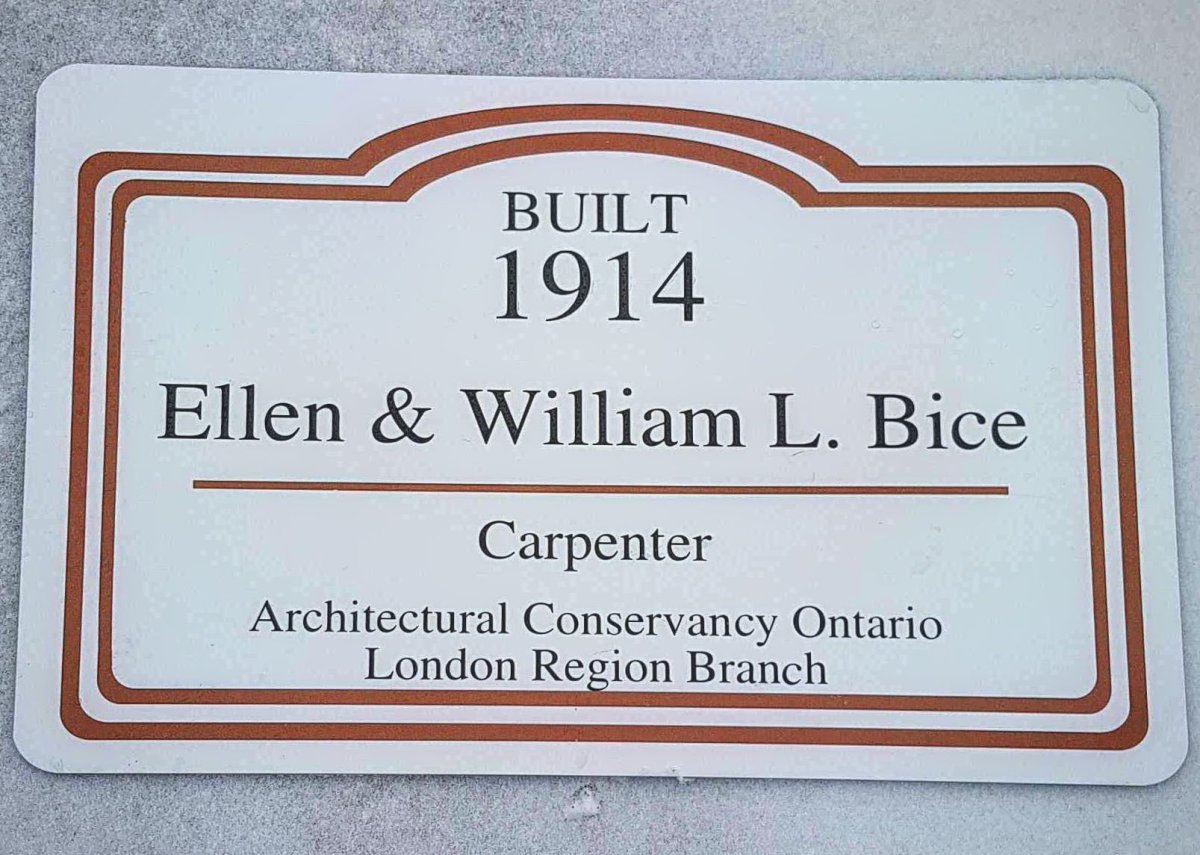Prices aren’t the only things seeing an increase during the coronavirus pandemic when it comes to London real estate.

With many Londoners continuing to work remotely, officials with the London branch of the Architectural Conservancy of Ontario (ACO) say there’s been a noticeable surge in interest among Londoners looking to learn the historic backstory of their homes.
The organization’s Historical House Sign program has received roughly 75 requests just since the start of January, a figure normally seen over the course of a year, said Heather Guizzetti, the program’s co-ordinator.
“I think people are walking in their neighbourhoods to get out of their house a bit more and seeing (the signs) on their neighbouring homes and wondering about their own house,” Guizzetti said in an interview Tuesday with 980 CFPL’s Devon Peacock.
ACO London launched its Historical House Sign program in 2017, modelling it after one launched in 2011 by its sister branch ACO Stratford-Perth. The program recently completed its 300th sign, requested by the homeowner of 22 Peter St. in the city’s Woodfield neighbourhood.
“It’s been really interesting to see it take off,” Guizzetti said.
“It does make sense with people exploring their neighbourhoods more that they happen to be mindful and notice things… when they’re walking the same block for the 200th time.”
- ‘Alarming trend’ of more international students claiming asylum: minister
- Justin Trudeau headed to UN Summit of the Future amid international instability
- Canadian government’s satellite deal has Tories calling for Elon Musk involvement
- Activists call for Boogie the monkey to be removed from Ontario roadside zoo
Similar heritage signs have been a familiar presence in London for more than eight years, most notably in Old East as part of a grassroots project started by the Old East Village Community Association.

Get daily National news
Where the ACO’s project differs is that local homeowners don’t have to do all the historical digging themselves. As part of the program, residents can pay $100, or $75 for ACO members, to have their home’s history researched for them and then printed on an 18-by-12-inch sign to be affixed outdoors.
ACO says a dedicated research team made up of 15 volunteers dives into the history of each submitted home, spending roughly 10 to 20 hours of work to determine the original owner, their occupation and the year of the home’s construction, using the London Public Library’s London Room and Western Archives, among others, as data sources.
“We’ve done a really good job at digitizing as much as we can in the last 12 months so that we can do a lot more from home than we previously would have done all exclusively through microfilm,” Guizzetti said.
Once the research has been completed, the ACO prepares a 10- to 20-page report for the homeowners detailing the building’s architecture (where possible), the neighbourhood, the original occupants and what their lives may have been like when they lived at the home.
“I think a really popular thing is to learn more about the professions that homeowners used to have,” Guizzetti said.
“It’s always really interesting to see the number of blacksmiths and teamsters that helped the horse-driven economy move, all the way through to cigar makers and a lot of factories, confectioners — you wouldn’t believe the number of confectioners you come across.”
While there is no hard cut-off age for homes that can be submitted, Guizzetti says the ACO tries to research homes built before 1950 as much as possible, given that for newer homes, the original owners may still be alive.
“We also run into issues for newer homes where records are not yet publicly accessible, like census records are only published once every hundred years, so if you start researching a home built in the 60s, there’s less and less publicly accessible information to go off of,” she said.
Those interested in having their homes researched can submit a request via the ACO London website.
Given the increased demand and the limited access to archives as a result of the coronavirus pandemic, the ACO says research and sign turnaround is between two and six months.
The ACO adds the results of researched homes will be shared with city heritage planners and kept on file at the library and at ACO London.












Comments